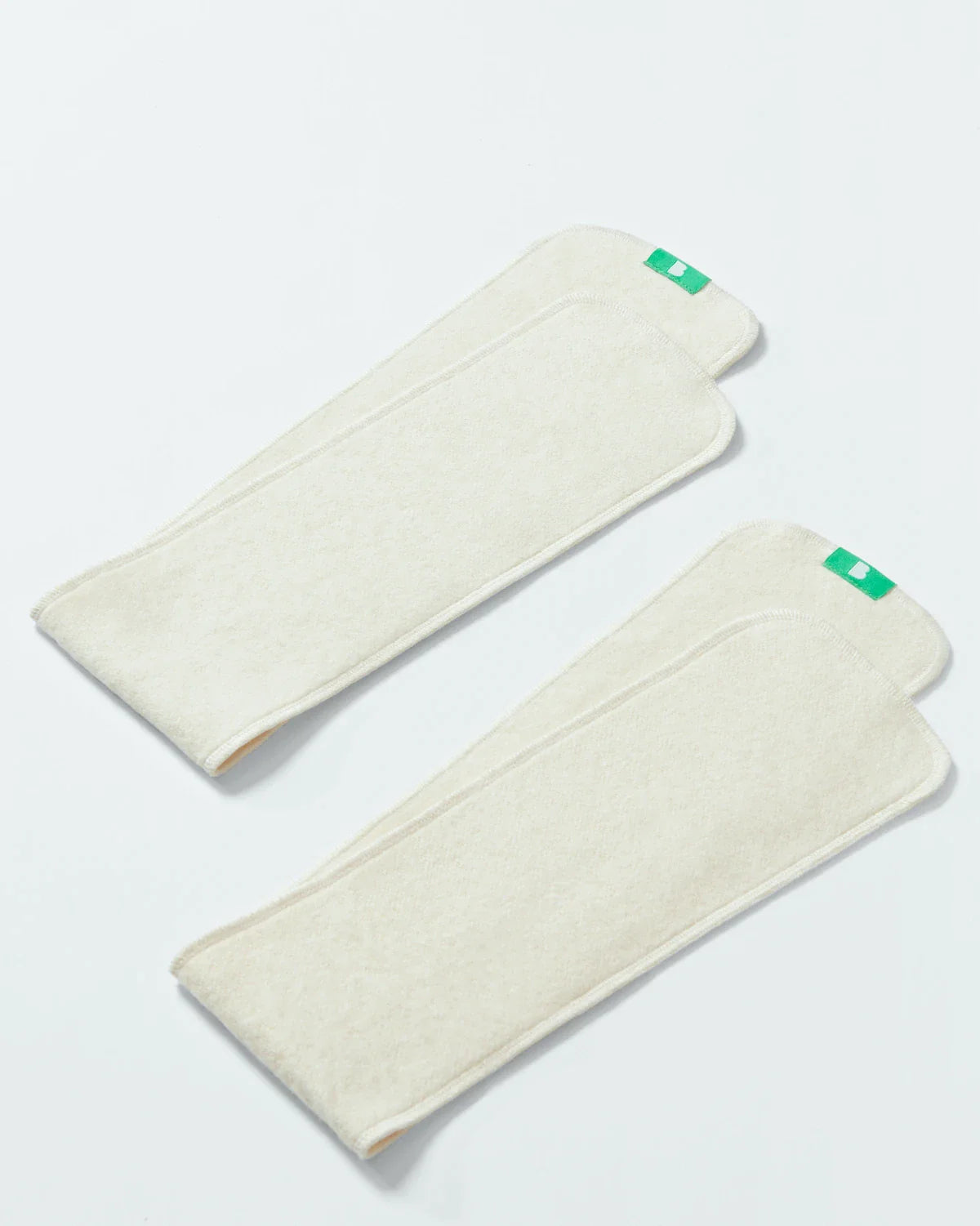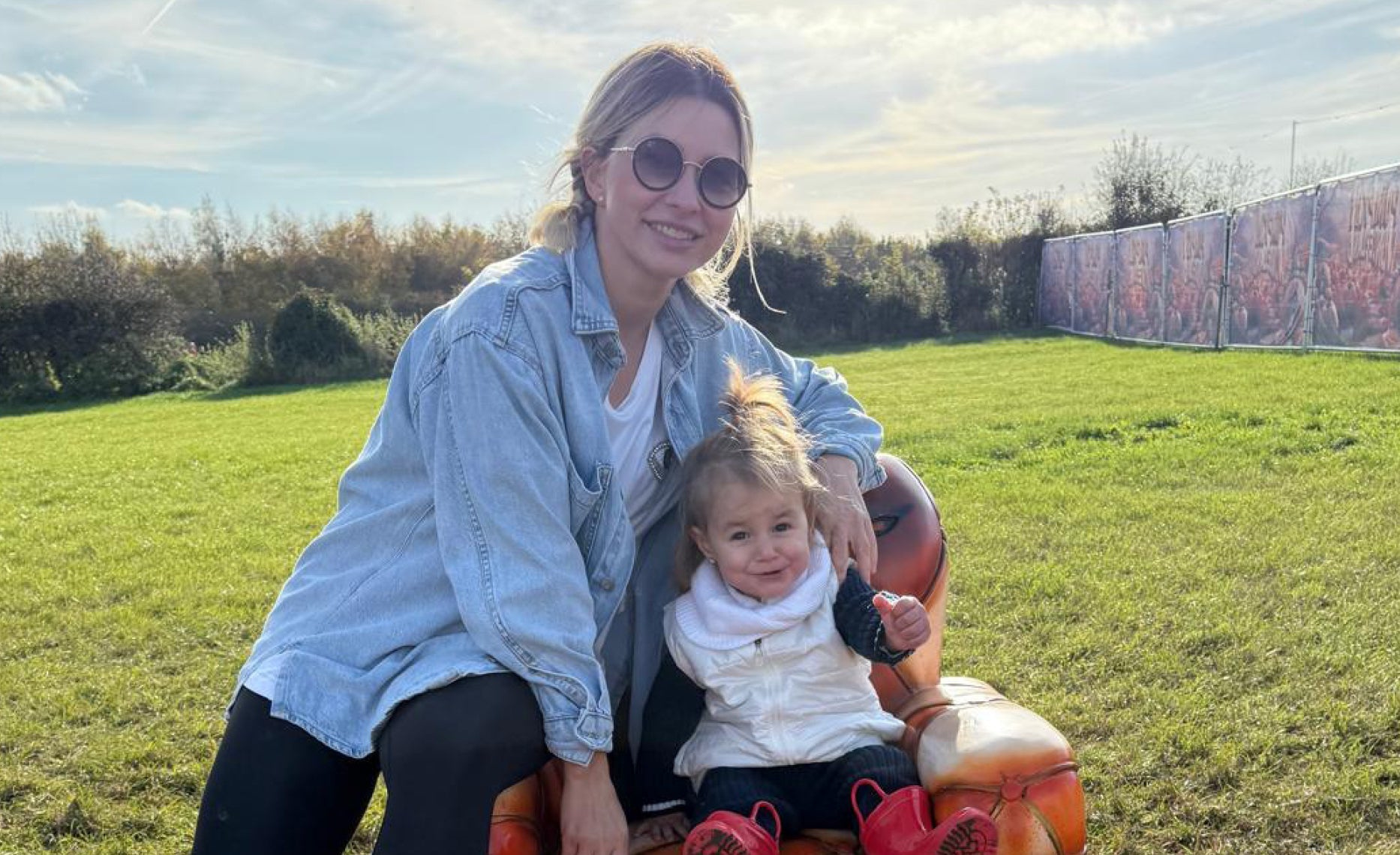Week 18 of Pregnancy | How Big is Your Baby at 18 Weeks?
Share Options
- Bambino Mio
- 20 / 07 / 2023

Inside this Article:
- At 18 weeks of pregnancy, your baby is the size of a bell pepper!
- Your baby’s learning to nap already!
- Their nervous system is developing further
- Your baby’s sex organs are identifiable now
- How you’re feeling at 18 weeks pregnant
- You might feel some movement by now!
- Your baby bump
- More about your sense of balance
- Staying healthy at 18 weeks pregnant
- Coping with low blood pressure
- Do a little something for yourself
- Things to think about at 18 weeks pregnant
- Citation and References
Pregnancy is a time of huge change for you, your body and your life. Our guide will help you through this amazing time, letting you know what to expect at each stage and, most excitingly, what your baby is up to each week.
At 18 weeks of pregnancy, your baby is the size of a bell pepper!
At 18 weeks of pregnancy, your baby is the size of a bell pepper, which is to say, almost 15cm (5.75in) in length from their crown to their rump. From crown to heel, they’re 21.2cm (8.3in) and they weigh 210g (almost 8oz).
Your baby’s learning to nap already!
Your baby is working out how to sleep and wake up around now. We all have an internal clock which tells us when to go to sleep and when to wake up and your baby’s biological clock is organising itself (1), ready for life on the outside.
Their nervous system is developing further
Your baby is starting to produce myelin (2), the mix of protein and fat which insulates nerve cells in the nervous system, brain and spinal cord. Myelin also helps messages to travel rapidly and efficiently along nerve pathways (3).
Your baby’s sex organs are identifiable now
Your baby’s sex organs are still developing and still have to grow a bit more, but a sonographer can determine their sex (4) with high accuracy now. You might want to find this out at your 20-week scan (5), which is coming up soon!
How you’re feeling at 18 weeks pregnant
You’re probably looking pregnant by now and people will be starting to notice your expanding waistline and bump. This bump may also be causing you to feel a little bit off balance as your centre of gravity starts to shift (6).
Your blood pressure might be dipping (7) every now and again at this point in your pregnancy, so make sure you drink plenty of water to maintain a decent volume of blood and fluid.
You might feel some movement by now!
If this is your first baby, you might still have a week or two to wait until you feel a bit of movement (8), but you might get lucky this week! At this point you’ll feel some flutters or jiggling rather than kicks or pushes because your baby is still small and still has a lot of room.
Your baby bump
Your baby bump is increasingly visible, although it may be more of a curve still, especially if this is your first baby. The chances are that people - acquaintances and strangers - will start to comment and ask if you’re pregnant.
More about your sense of balance
As your belly gets bigger, your centre of gravity shifts a little. Combined with your relaxed ligaments, you might occasionally feel somewhat off balance. You might just feel a bit unstable and wobbly or you might suddenly lose your balance (9), so be careful when you’re moving around a lot.
Staying healthy at 18 weeks pregnant
This week, it’s all about looking after your blood pressure and taking some time out to do something for yourself.
Coping with low blood pressure
You may not feel any different, even if your blood pressure does drop a bit. But, if you feel lightheaded, or you're having dizzy spells, you can try:
You might not be aware of any blood pressure changes even if they’re happening, but you might feel them if you stand up suddenly or if you have to stand up for a long time. Here’s some tips on coping with low blood pressure:
- Make sure you get up slowly from a sitting or lying position so avoid sudden dizziness
- Don’t stand still for long periods of time - try to walk around a bit
- Avoid hot baths or showers - 37C is best
- Drink lots of water to maintain fluid and blood volume
If you’re feeling dizzy a lot, or when you’re lying or sitting down, it could be low blood sugar (10) or anaemia (11), so mention this to your midwife.
Do a little something for yourself
Pregnancy is hard work, so take some time out to look after yourself. You could head to a spa or meet up with friends for a few hours. Alternatively you could pamper yourself with a manicure or an antenatal massage (make sure the salon knows you’re pregnant).
You might not want to head to a spa or a salon if it’s not your thing. You might, then, prefer to see a film with your friends or go to dinner with your partner. As long as you feel you’re treating yourself, that’s all that matters.
Things to think about at 18 weeks pregnant
Your 20-week scan (12), also known as your anomaly scan, is around the corner to find out more about it and decide with your partner whether or not you want to find out your baby’s sex.
Make plans for a fun day with friends, family or partner and spend some quality time with them.
Make notes about any new symptoms so you can tell your midwife or doctor at your next appointment with them.
Start researching your options for the birth (13). Do you want to go to a midwife-led unit or do you think a water birth would work for you? Your midwife can help you to make the right decision.
Citation and References
(1) MDPI. ‘Circadian Clock, Time-Restricted Feeding and Reproduction.’ 2020. Web. www.mdpi.com/1422-0067/21/3/831
(2) National Institutes of Health (NIH). National Library of Medicine. ‘Development of Myelination in the Human Fetal and Infant Cerebrum: a Myelin Basic Protein Immunohistochemical Study.’ 1992. Web. pubmed.ncbi.nlm.nih.gov/1375444
(3) National Institutes of Health (NIH). National Library of Medicine. MedlinePlus. ‘Myelin.’ 2023. Web. medlineplus.gov/ency/article/002261
(4) National Institutes of Health (NIH). National Library of Medicine. ‘Accuracy of sonographic fetal gender determination: predictions made by sonographers during routine obstetric ultrasound scans.’ 2015. Web. www.ncbi.nlm.nih.gov/pmc/articles/PMC5024945
(5) National Health Service (NHS). ‘Your Pregnancy Care. 20-week Screening Scan.’ 2021. Web. www.nhs.uk/pregnancy/your-pregnancy-care/20-week-scan
(6) National Institutes of Health (NIH). National Library of Medicine. ‘Changes in balance strategy in the third trimester.’ 2015. Web. www.ncbi.nlm.nih.gov/pmc/articles/PMC4499990
(7) Healthline. ‘Is it Dangerous to Have Low Blood Pressure During Pregnancy?’ 2019. Web. www.healthline.com/health/pregnancy/low-blood-pressure-during-pregnancy
(8) Wiley Online Library. ‘Fatal Movements: The Origin of Human Behaviour.’ 2021. Web. onlinelibrary.wiley.com/doi/full/10.1111/dmcn.14918
(9) Lower Extremity Review Magazine. ‘Pregnancy Changes the Body: Here’s What That Means for Gait, Balance, and Falls.’ 2019. Web. lermagazine.com/cover_story/pregnancy-changes-the-body-heres-what-that-means-for-gait-balance-and-falls
(10) Healthline. ‘What’s the Connection Between Hypoglycemia and Pregnancy?’ 2017. Web. www.healthline.com/health/pregnancy/hypoglycemic-and-pregnant#risk-factors
(11) National Health Service (NHS). ‘Preventing and Treating Anaemia During Pregnancy.’ 2017. Web. www.imperial.nhs.uk/-/media/website/patient-information-leaflets/maternity-services/antenatal-care/preventing-and-treating-anaemia-during-pregnancy.pdf
(12) National Health Service (NHS). ‘Your Pregnancy Care. 20-week Screening Scan.’ 2021. Web. www.nhs.uk/pregnancy/your-pregnancy-care/20-week-scan
(13) National Health Service (NHS). ‘Preparing for the Birth. Where to Give Birth: the Options.’ 2021. Web. www.nhs.uk/pregnancy/labour-and-birth/preparing-for-the-birth/where-to-give-birth-the-options/
Pregnancy by Week, What to Expect







































